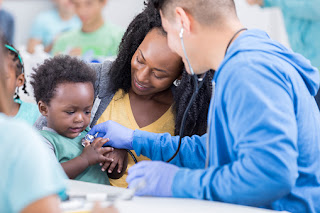Currently seeking a Bachelor of Science in Nursing at the University of Delaware's College of Health Sciences,
Sophia Eick serves as a waitress at Pats Select. Sophia Eick has also served as a volunteer with two Newark, Delaware-based organizations, including the Nurse Primary Care Center, where she performed nursing tasks on patients such as hearing and vision examinations, as well as eye tests.
Refraction, dilation, intraocular pressure measurement, and a personal inspection by an eye care expert are typically included in both medical and routine
eye examinations. These exams are, nonetheless, different. The main distinction between medical and regular eye exams is the reason for the examination.
Insurance companies frequently differentiate between medical and routine eye examinations based on a patient's primary complaint or the experts' diagnosis. The diagnosis and treatment of an eye illness, such as glaucoma or cataract, are part of a medical examination. A routine eye examination, on the other hand, involves the detection and treatment of non-medical issues such as farsightedness and astigmatism.
For instance, everything relating to a prescription for glasses or contacts is considered routine. An evaluation becomes a medical exam if the doctor detects that a patient's vision is impaired due to an illness.





